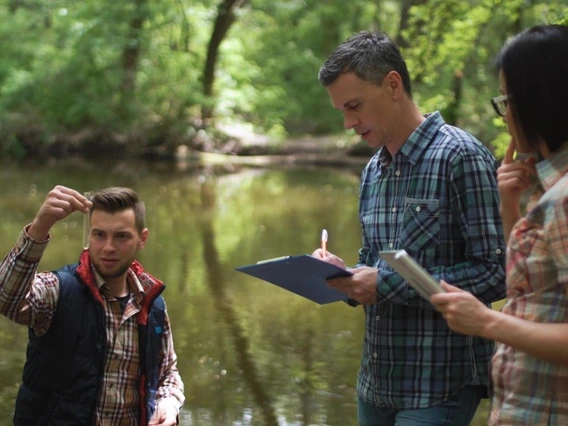Undergraduate Major Programs

Agricultural Technology Management and Education
Leadership and Communication Emphasis
Prepare to lead the next wave of agriculture and natural resource innovation and to become a leader, community change agent, or ambassador or advocate for the agriculture industry while studying science, technical agriculture, and principles of entrepreneurial leadership while building communication, management, and problem-solving skills.

Bioinformatics
Apply computational techniques to manage, analyze, and understand biological information with highly sophisticated computational algorithms and tools coupled with the deep biological knowledge. The degree program will provide you with the knowledge and expertise in both computational and biological domains necessary to be competitive in this rapidly growing field.

Ecology and Evolutionary Biology
Explore evolutionary ecology and genetics in the first department of its kind in the world. Prepare to pursue graduate study or a career such as scientific journalism, developing environmental and scientific policy, or practicing law in related fields through core courses in genetics, ecology and evolution, and additional opportunities for independent research.

Economics
Hone your analytical skills and position you for a variety of career paths including business, manufacturing, labor, agriculture, natural resources ,and government. Students who wish to earn their B.A. in Economics must first enroll in the Pre-Economics major and complete a minor in a chosen area of interest and four semesters of a foreign language.

Environmental and Water Resource Economics
Prepare to become a responsible leader in the management of natural resources through coursework in quantitative methods, economics, politics and communication. You'll learn how to formulate policies for responsibly managing natural resources while gaining skills in business management, human resources, and food/fiber production.

Environmental Science
Leadership, Sustainability, and Communication Emphasis
Immerse yourself in environmental laws, regulations and policies to discover how to be part of a successful response to pollution, natural resource management and climate change. Learn to predict how landscapes change under the effects of climate, geology and land use, and what actionable steps are needed to create a sustainable future.

Environmental Studies
This major sheds light on the human dimensions of environmental issues. Explore techniques for addressing pressing social science issues and study physical science techniques as you learn about water, land use, food, energy, the built environment and climate from a critical perspective of policy and social science.

Food Studies
Gain knowledge to address pressing social and environmental problems in local and global food systems. An interdisciplinary approach that examines how food is connected to culture, society, policy, and the environment prepares students for careers any number of food-related fields, including education, public policy, entrepreneurship, and community development.

Geography
This interdisciplinary degree combines physical and social sciences; you may focus on specific world landscapes and cultures or on areas such as urban, political, economic or cultural geography, or on human-environment relations. Learn to analyze data and policy in order to address and research critical questions about the world you live in.

Geography
Water, Environment and Society Emphasis
Explore water supply and demand—a critical issue globally and in the Western U.S.—at a the world's No. 1 program in water resources. Courses examine key challenges and train you in the methods to address them, including remote sensing, geographic information science, and field methods, complemented by internships and research opportunities at renowned facilities and organizations.
Pagination
Environmental Themes
Career Fields












